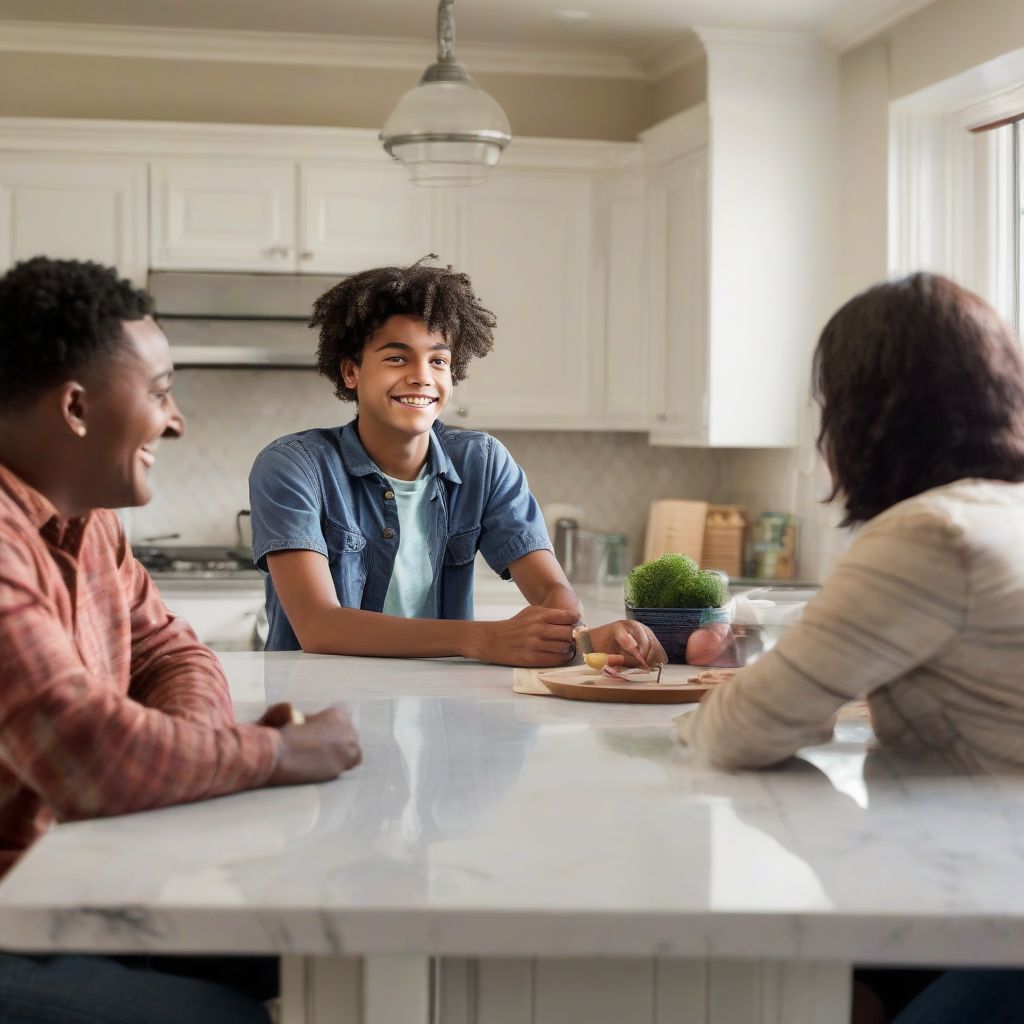 Parents Talking to Their Teenager
Parents Talking to Their Teenager
“These kids these days…” is a phrase uttered by generations, often laced with worry and a hint of judgment. The teenage years, a period marked by significant physical, emotional, and social changes, can be a time when risk-taking behavior emerges. As a nutritionist and meal prep coach, I witness firsthand how important healthy choices are, particularly during adolescence. But healthy choices extend beyond the dinner plate. While teenagers might crave independence, parental guidance plays a crucial role in shaping their decisions and navigating the choppy waters of risk.
Understanding the Teenage Brain and Risk
The teenage brain is a fascinating work in progress. The prefrontal cortex, responsible for decision-making, impulse control, and reasoning, is still developing. This biological factor contributes to teenagers being more likely to:
- Seek novelty and thrills: The brain’s reward system is highly active, pushing them to seek exciting and new experiences.
- Underestimate risks: They may not fully grasp the potential consequences of their actions.
- Give in to peer pressure: Social acceptance is paramount, and they’re more likely to engage in risky behavior if their friends are doing it.
The Anchor in the Storm: How Parents Can Guide
While the teenage brain might be wired for a bit more risk, parents and caregivers remain incredibly influential. Imagine a ship navigating a storm; the teen is at the helm, eager to test the waters, but parental guidance acts as the anchor, providing stability and direction. Here’s how:
1. Open and Honest Communication:
Instead of lecturing, foster an environment of open dialogue. Encourage your teenager to share their thoughts, feelings, and experiences without fear of judgment.
Example: “I’m curious about what you think about [risky behavior]. I’ve heard some kids talking about it, and I wanted to get your take.”
2. Setting Clear Expectations and Boundaries:
Teenagers thrive within a structured environment. Clearly communicate your family’s values and expectations regarding risky behaviors, such as drug use, alcohol consumption, unsafe driving, and sexual activity.
Example: Collaboratively establish rules around curfews, internet use, and social gatherings.
3. Active Listening and Empathy:
Truly listening to your teenager means putting aside your own biases and judgments. Try to see the situation from their perspective and validate their feelings, even if you don’t agree with their choices.
Example: “It sounds like you’re feeling pressured to [engage in risky behavior]. I understand how tough that must be.”
4. Problem-Solving Together:
Equip your teenager with the skills to make responsible decisions. Instead of dictating solutions, involve them in brainstorming ways to handle challenging situations.
Example: Role-play different scenarios, discussing potential consequences and alternative choices.
5. Leading by Example:
Teenagers are incredibly observant. Be mindful of your own behaviors, as they are more likely to adopt the habits they see in you.
Example: If you advise against smoking but light up yourself, the message becomes inconsistent and confusing.
6. Staying Involved and Informed:
Show interest in your teenager’s life. Get to know their friends, their interests, and what’s happening in their social circles.
Example: Attend their sports games, concerts, or school events. Stay updated on current trends and social media platforms popular among teenagers.
When to Seek Professional Help
Sometimes, despite our best efforts, teenagers may engage in risky behaviors that raise concern. If you observe any of the following, consider seeking professional guidance from a therapist or counselor:
- Significant changes in behavior, mood, or academic performance
- Withdrawal from family and friends
- Loss of interest in activities they once enjoyed
- Engaging in illegal activities
- Expressing thoughts of self-harm or suicide
Building Resilience: A Shared Journey
Remember, raising teenagers is a marathon, not a sprint. There will be challenges and triumphs along the way. By fostering a strong foundation of open communication, clear expectations, and unconditional love, you empower your teenager to make healthy choices and navigate the often-turbulent waters of adolescence.
While we can’t eliminate risk altogether, we can equip our teenagers with the tools and support they need to make responsible decisions and build resilience for the journey ahead. After all, life is about taking risks, but it’s the calculated ones, made with careful consideration and guidance, that often lead to the most rewarding outcomes.
[amazon bestseller=”parenting teenagers”]
